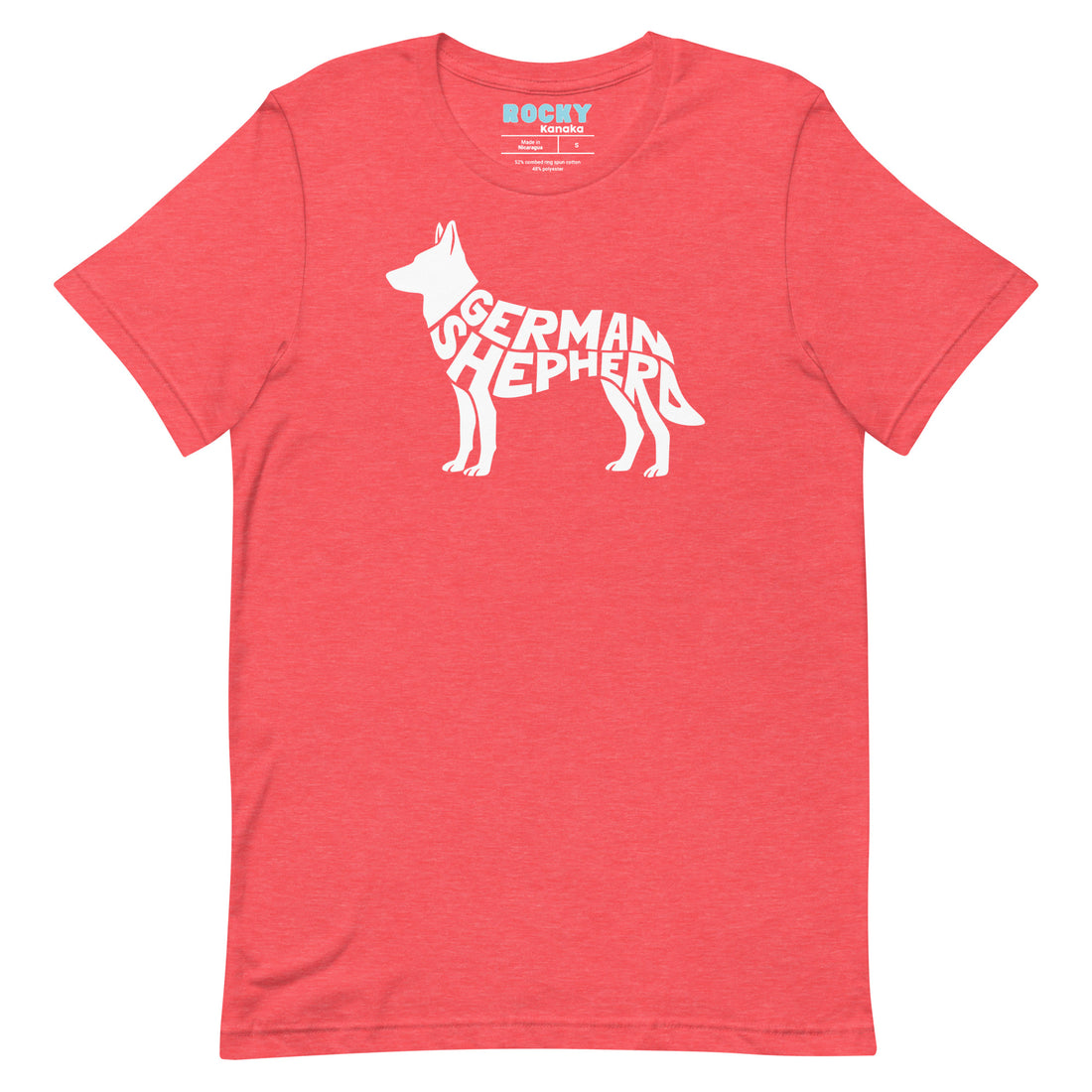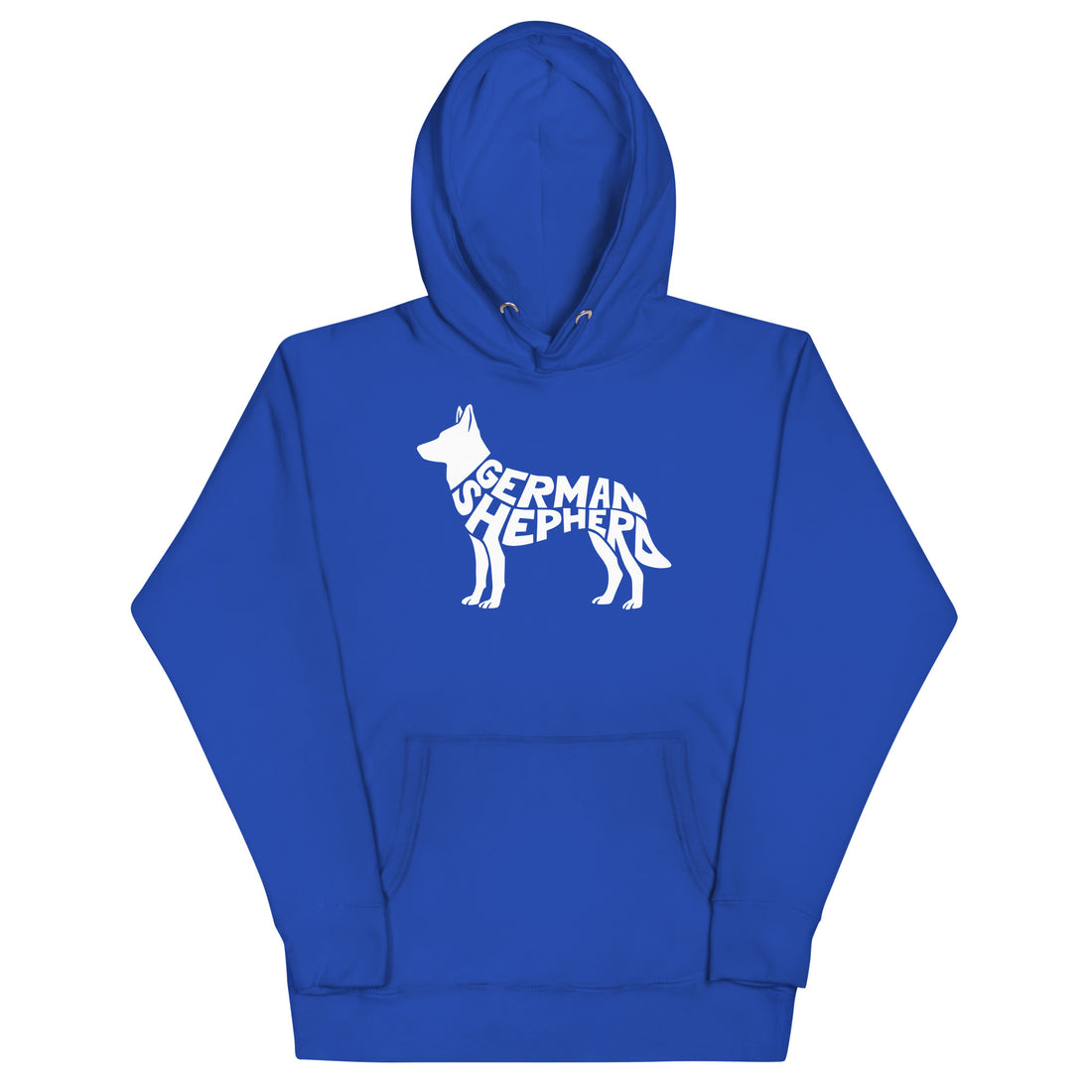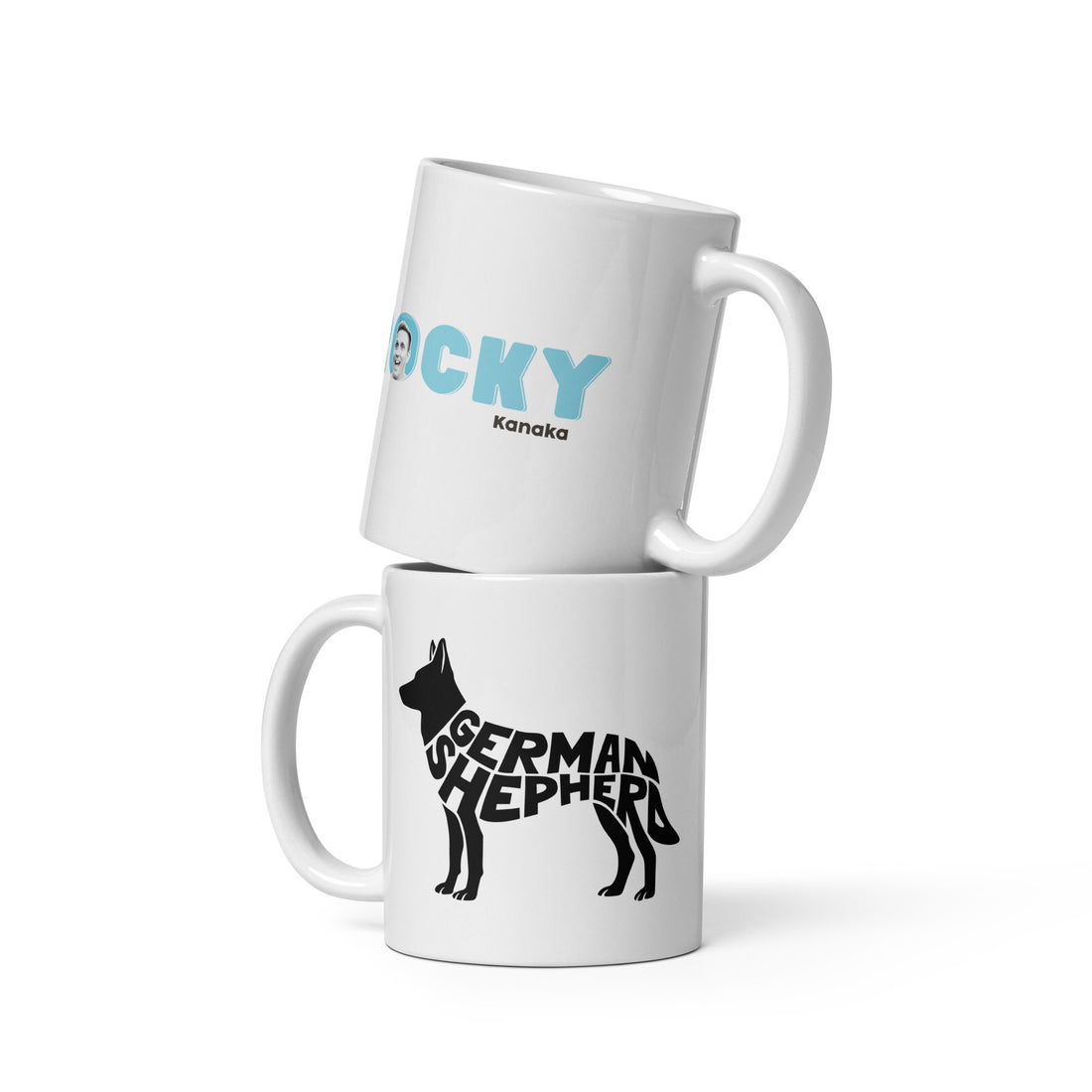Best Puppy Food for German Shepherds
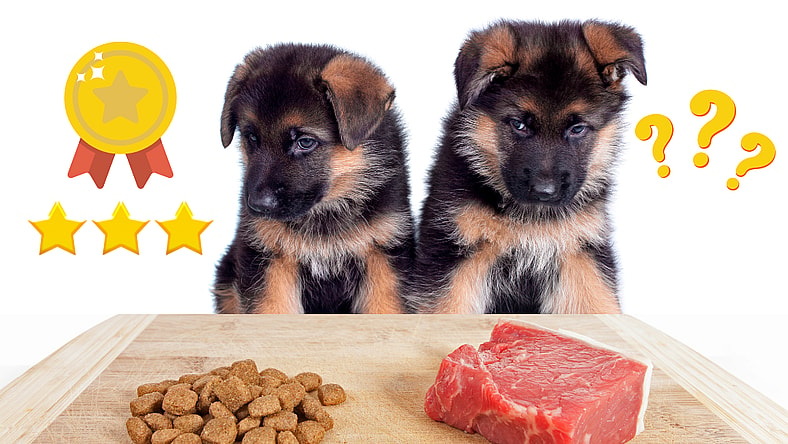
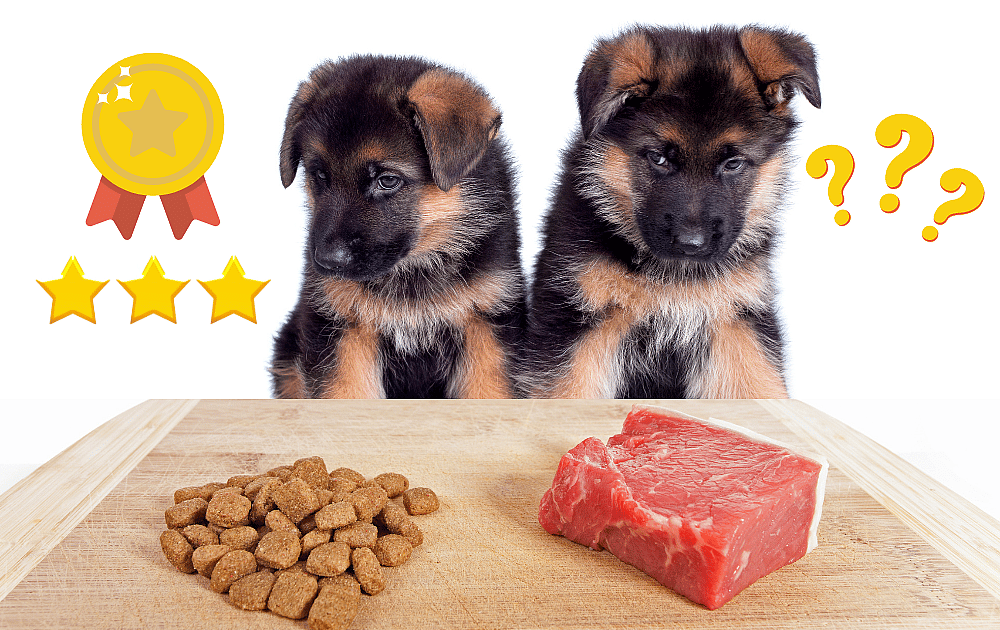
Disclosure: This page contains affiliate links. If you click on these links and make a purchase, we may receive a small commission at no extra cost to you. This helps support our mission to to spread the word about dogs that are still looking for their forever homes. We only recommend products we believe in.
When you bring home a German Shepherd puppy, you may find yourself wondering about the best puppy food. German Shepherd puppies start small, but will quickly grow into healthy, confident dogs when fed and treated well.
All puppies require high-quality dog food, but the best dog food for German Shepherd puppies is one with dense nutrition, high-quality ingredients, and the vitamins and minerals to support a growing dog from a breed that is known to be active and athletic. German Shepherds are large dogs, which means that they will need lots of calories and nutrients during their growing years.
Related Articles:
- Top 4 Biologically Appropriate Dog Foods for German Shepherds
- Best Dog Food For Senior Dogs
- Best Dog Food for Weight Gain
 Best Dog Foods for German Shepherd Puppies
Best Dog Foods for German Shepherd Puppies
| Brand | Grain? | First 5 Ingredients | Price |
| Grain-free | Beef Heart Beef Liver Beef Kidney Beef Necks (with bone) WFR vitamin + mineral mix | $$ | |
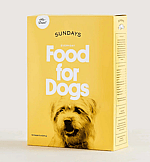 Best Air-Dried: Sundays For Dogs Beef Recipe | Grain-inclusive | Beef Beef Heart Beef Liver Beef Bone Quinoa | $ |
| Grain-free | Beef Hearts Beef Livers Ground Beef Bones Organic Carrots Organic Squash | $$$ | |
| Grain-inclusive | Beef Sweet Potato Lentils Carrot Beef Liver | $$ | |
| Grain-inclusive | BeefBarleyFlaxCarrotsGreen Beans | $ | |
| Grain-free | Beef Beef Broth Turkey Beef Liver Potatoes | $$ |
German Shepherd Puppy Nutritional Needs
Even though puppies start small, they don’t stay small for long. Puppies need a lot of energy to grow into adult dogs, and for large breeds like the German Shepherd, the right nutrition is even more important.
When you’re choosing the best puppy food for German Shepherds, you need to consider how big your little puppy is going to get. German Shepherds can grow to over fifty pounds in their first year of life– that’s a big puppy!
Growing with Your Puppy
For the first several months of life, puppies need to be fed several times a day. By the time they are six weeks old, puppies can start eating solid food, although kibble may need to be moistened for their tiny teeth. Until twelve weeks of age, pups generally need four small meals a day.
Between 12 weeks and 6 months of age, puppy meals should decrease to three times a day instead of four. By about three months, you should start seeing your puppy’s body type maturing; the puppy’s belly should shrink as your pup’s legs start to grow.
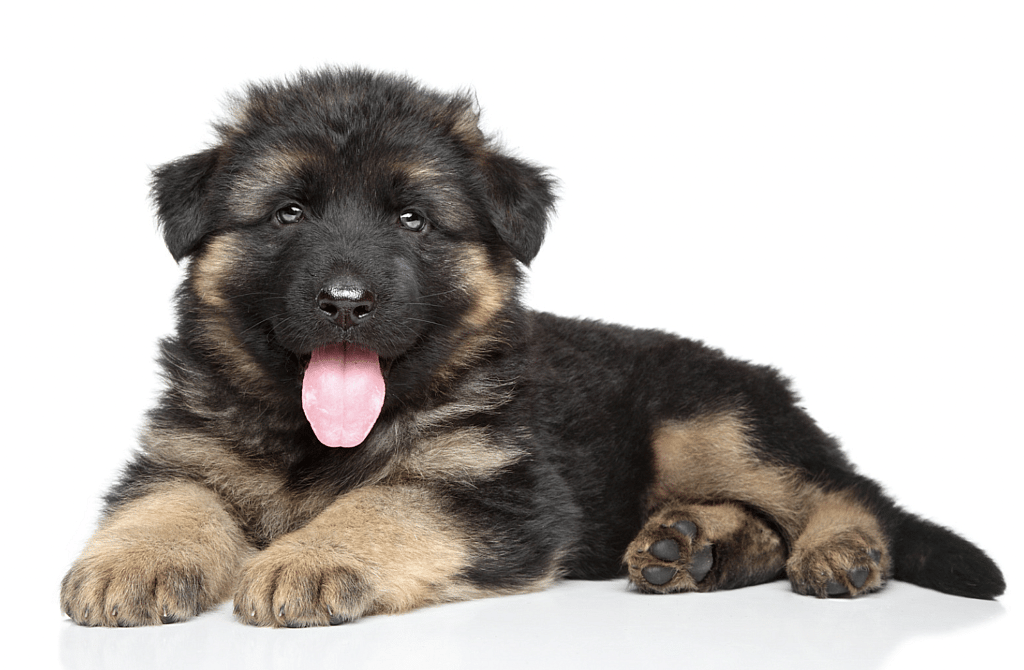
Between 6 and 12 months, you can start feeding your dog two times a day. However, many large breed owners prefer to keep their puppies on three meals a day because they need more nutrients. You can make the switch from puppy food between 7 and 9 months for small breeds, but big breeds like German Shepherds should keep eating puppy food until they’re 12-14 months old. It’s better to keep your German Shepherd on puppy food a little too long than not long enough.
By 18 months, your puppy should be eating twice a day and should be eating high-quality adult dog food.
Nutrients for Growing Puppies
Because puppies spend so much of their energy on growth, there are certain nutrients that they need to support that development.
| Nutrient | Use | Nutrient | Use |
| Protein | Muscle growth and development | Magnesium | Mineral that supports muscle health |
| Fat | Concentrated energy source | Selenium | Mineral that supports healthy joint tissue and membranes |
| Carbohydrates | Source of energy; contains glucose, vitamins, antioxidants, and minerals | Vitamin K | Strengthens the skeletal structure |
| Calcium | Mineral that supports bone growth and development | Vitamin E | Supports healthy skin and coat |
| Iron | Mineral that supports healthy blood and muscles | Vitamin B | Necessary for digesting protein and fat |
| Phosphorus | Mineral that supports healthy teeth, bones, and metabolism | Vitamin A | Supports cell growth and division |
German Shepherd Health
There are certain traits of the German Shepherd breed that can be supported with good nutrition.
Skin & Coat: German Shepherds have plush, double coats. To keep their coats healthy and shiny, the best puppy food for shepherds will have omega fatty acids and Vitamin E. Look for beef, fish, eggs, plant oils, or leafy green vegetables in the ingredients list for coat support.
Skin allergies are fairly common in German Shepherds. We will talk more about the best foods for dogs with skin allergies further down. One of the most common ingredients that cause issues for dogs with skin allergies is grain. This includes corn and wheat, and may also include oats. However, not all dogs with skin allergies and grain issues have a problem with oats.
Look for foods that have a limited number of ingredients and have a high concentration of omega fatty acids. This will help support your dog’s skin health.
Hips & Joints: German Shepherds can be prone to hip dysplasia and other hip issues. To help keep your German Shepherd’s joints healthy as they grow, look for puppy food that contains ingredients known to help with joint mobility. These can include flaxseed, oats, peas, and animal protein that includes balanced amino acids.
 Best Dog Food for German Shepherd Puppies
Best Dog Food for German Shepherd Puppies
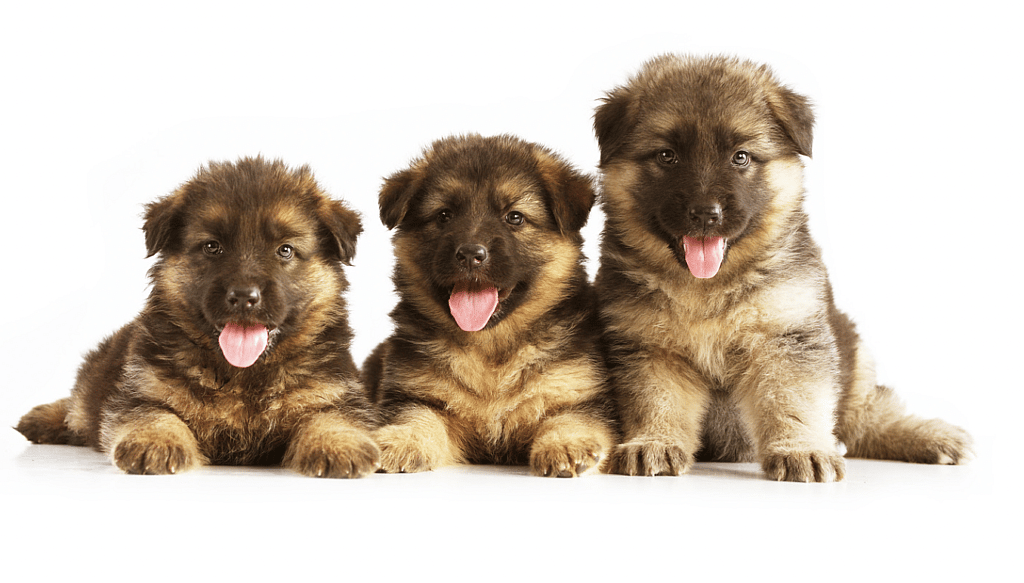
So what are the best puppy foods for German Shepherds? The answer varies depending on how you want to feed your dog. There are lots of different types of dog food that will support your German Shepherd puppy’s growth and development.
While some pet owners swear by raw food and others prefer to feed a healthy kibble, the real answer to what is the best dog food for German Shepherd puppies varies. What matters is that your puppy is fed the right amount of food with the right nutrition.
Our recommendations are all made from high-quality ingredients, feature a high-protein formula, and are perfect for meeting the high-calorie dietary needs that a large breed like the German Shepherd has. We have several options in lots of different categories, so we know that you will find the best food to feed German Shepherd puppies on this list!
 1. Best Raw: We Feed Raw Beef Patty Recipe
1. Best Raw: We Feed Raw Beef Patty Recipe

This raw beef diet contains everything a growing German Shepherd puppy needs. It’s one of the best German Shepherd puppy foods because it’s a great source of Omega-3 and Omega-6 fatty acids, and promotes a healthy heart and immune system.
This raw food has beef as its primary ingredient. Raw meat is highly digestible for puppies, and this high-quality diet is low in carbohydrates but high in protein and fat for the best possible puppy nutrition.
Save 25% off your first subscription trial box.
| First 5 Ingredients | Beef Heart, Beef Liver, Beef Kidney, Beef Necks (with bone), WFR vitamin + mineral mix (contains Flaxseed, Calcium Carbonate, Zinc Sulfate, Sodium Selenite, Vitamin E Supplement, and more) |
| Food Type | Raw, grain-free |
| Guaranteed Analysis (crude) | 12.2 % Protein – 10% Fat – 1% Fiber – 68.8% Moisture |
| Feeding Instructions | Feed 2% of ideal adult weight per day (for working dogs, feed 2.5%); a healthy adult German Shepherd male weighs 79 to 88 pounds, while a healthy adult German Shepherd female weighs 66 to 70 pounds. This means that boy puppies should get about 1.67 pounds of this food per day, while girl puppies should get about 1.36 pounds per day. |
| Cost Per Meal | This food costs approximately $6.60 per pound, so 1 meal for a male puppy (about 0.84 pounds) costs $5.54. |
 What Reviewers Say:
What Reviewers Say:

 2. Best Air-Dried: Sundays For Dogs Beef Recipe
2. Best Air-Dried: Sundays For Dogs Beef Recipe

If you struggle to get your German Shepherd to eat their food, but they love treats, they’ll probably love Sundays For Dogs. Air-dried in small pieces that look, taste, and feel like jerky, Sundays For Dogs can also be used as training treats if you’re working on teaching your German Shepherd new tricks, or they just deserve an extra snack at the end of a long hard day of naps.
Other than the delicious recipe, we think Sundays For Dogs deserves consideration for best food for German Shepherds thanks to the turmeric to reduce inflammation, blueberries for antioxidant and immune support, and tart cherries to protect the joints.
Get 35% off your first order + free shipping w/ code ROCKY35!

| First 5 Ingredients | Beef, Beef Heart, Beef Liver, Beef Bone, Quinoa |
| Food Type | Air-dried, grain-inclusive without wheat, peas, corn, or legumes |
| Guaranteed Analysis | 30% Protein – 20% Fat – 3% Fiber – 15% Moisture |
| Feeding Instructions | Feed ½ cup (2.2 oz.) per day or ¼ cup (1.1 oz.) per meal* |
| Cost Per Meal | $1.92 per meal* – $69 for 72 oz. (best option for savings) |
 What Reviewers Say:
What Reviewers Say:
 3. Best Freeze-Dried: Primal Freeze-Dried Beef Formula
3. Best Freeze-Dried: Primal Freeze-Dried Beef Formula

When people look for the best food to feed German Shepherd puppy dogs, they often turn to freeze-dried food for convenience and high nutritional value. We love Primal’s formulas because they are so easy to use and so good for your dog. Just add water to rehydrate the freeze-dried nuggets, let sit, mix, and serve.
Freeze-dried is also a good alternative to raw if you don’t have freezer space.

| First 5 Ingredients | Beef Hearts, Beef Livers, Ground Beef Bones, Organic Carrots, Organic Squash |
| Food Type | Freeze-dried, grain-free |
| Guaranteed Analysis (crude) | 34% Protein – 36% Fat – 8% Fiber – 3% Moisture |
| Feeding Instructions | 22 nuggets daily or 11 nuggets per meal |
| Cost Per Meal | $7.50 per meal or $15 per day – 14-ounce bags contain about 48 patties and cost $32.28 |
 What Reviewers Say:
What Reviewers Say:
 4. Best Fresh-Frozen: The Farmer’s Dog Beef Recipe
4. Best Fresh-Frozen: The Farmer’s Dog Beef Recipe
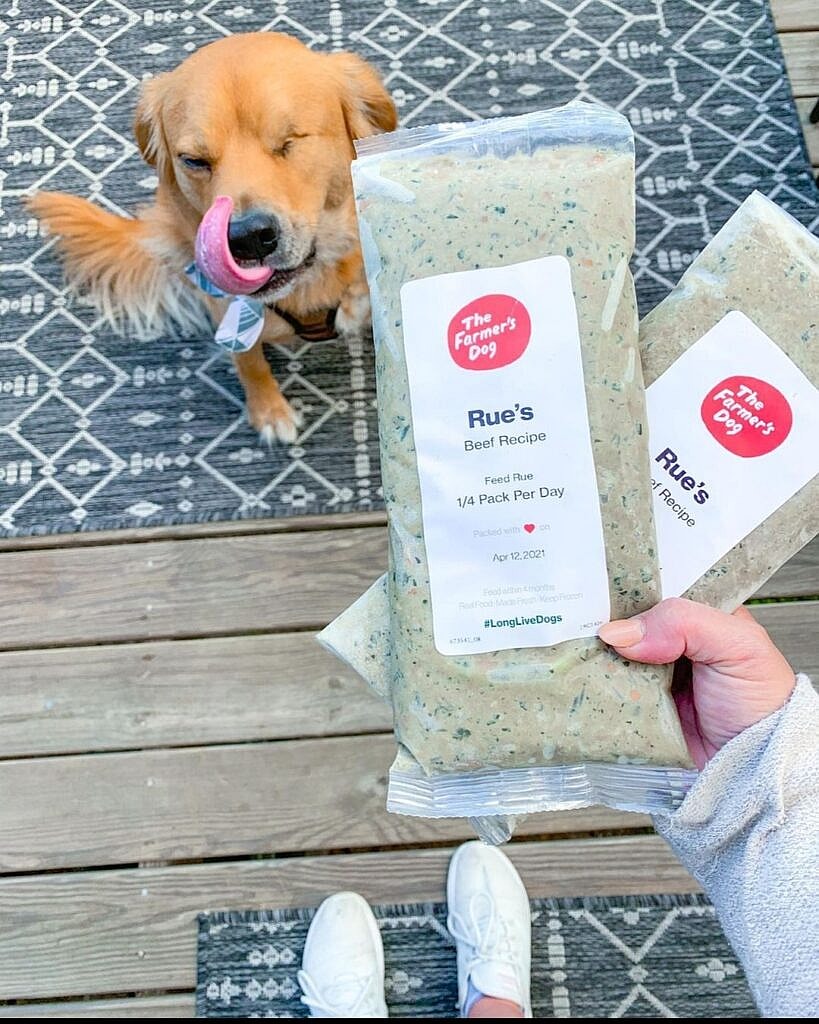
The Farmer’s Dog makes fresh-frozen formulas that taste as good as human food! If you’ve got a picky puppy, we can pretty much guarantee they’ll love this brand. Made from whole ingredients, you never have to worry about hidden filler with The Farmer’s Dog. They also make feeding super easy by portioning your dog’s food and recommending the right calorie count.

| First 5 Ingredients | Beef, Sweet Potato, Lentils, Carrot, Beef Liver |
| Food Type | Fresh-frozen, grain-inclusive |
| Guaranteed Analysis (crude) | 11% Protein – 8% Fat – 1.5% Fiber – 72% Moisture |
| Feeding Instructions | Feeding instructions are customized by The Farmer’s Dog for your puppy! |
| Cost Per Meal | $5 per meal or about $70 for two weeks of food. This price will increase as your puppy grows. |
 What Reviewers Say:
What Reviewers Say:
 5. Best Healthy Kibble: Spot & Tango Beef & Barley UnKibble
5. Best Healthy Kibble: Spot & Tango Beef & Barley UnKibble

A healthy alternative to the kibble you can find in most chain pet stores, UnKibble from Spot & Tango is made from healthy, whole ingredients. Tasty, crunchy, and great for use as training a tool, UnKibble is also a nice option for puppies since there’s no mess. Spot & Tango also offers novel proteins, so you have options if your GSD puppy has allergies.

| First 5 Ingredients | Beef, Barley, Flax, Carrots, Green Beans |
| Food Type | Kibble, grain-inclusive |
| Guaranteed Analysis (crude) | 26.58% Protein – 16.43% Fat – 3.18% Fiber – 2.04% Moisture |
| Feeding Instructions | Feeding instructions recommended by Spot & Tango based on your dog’s information! |
| Cost Per Meal | $3.33 per meal – Bags cost about $46 and last for two weeks. Remember this will increase as your puppy grows. |
 What Reviewers Say:
What Reviewers Say:
 6. Best Canned: Blue Buffalo Wilderness High Protein Natural Puppy Food Red Meat Dinner
6. Best Canned: Blue Buffalo Wilderness High Protein Natural Puppy Food Red Meat Dinner
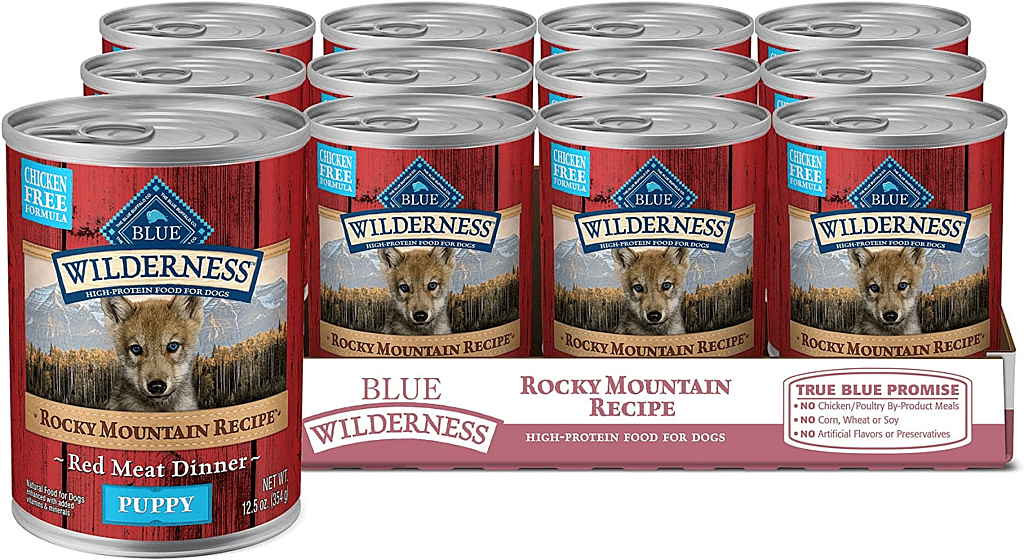
Blue Buffalo Wilderness canned puppy food is a good option if you have a picky puppy, but not a lot of freezer space. Soft and easy to eat, small puppies also do well learning how to eat off a dish with this food, and you can feed it to your pup until they reach adulthood.
Although this food is chicken-free, it does include turkey. Some dogs with chicken allergies are also allergic to turkey, so this isn’t a good option for puppies with food sensitivities.

| First 5 Ingredients | Beef, Beef Broth, Turkey, Beef Liver, Potatoes |
| Food Type | Wet, grain-free |
| Guaranteed Analysis (crude) | 10% Protein – 7% Fat – 1.5% Fiber – 78% Moisture |
| Feeding Instructions | Puppies up to 3 months should be fed as much as they will eat. Puppies 3 months and up should get ⅔ of a can per day for every 5 lbs of body weight. So, a 50 lb 6-month-old puppy should eat 6 ½ cans per day or 3 ¼ cans per meal. |
| Cost Per Meal | $10 per meal – this cost will increase as your puppy grows. |
 What Reviewers Say:
What Reviewers Say:
*Feeding instructions and cost analysis based on calculations for a 6-month-old, 50 lb German Shepherd puppy.
Best Food for German Shepherd Puppies FAQ
Discover the top questions other German Shepherd puppy owners like you have about feeding their dogs. We’ve answered them here.
How much food should a German Shepherd puppy eat?
The amount of food you feed your German Shepherd puppy will change as they grow. The bigger they get the more food they need, so be prepared to incrementally increase their meal size every couple of weeks for the first few months of their lives.
Remember that younger puppies also need to be fed multiple times per day. This is especially important for big breeds like German Shepherds.
Here’s a quick rundown of what breeders recommend for growing German Shepherd puppies. Remember that how much you feed your puppy will depend enormously on their individual needs.
Note that unless you are a breeder or rescuer, you should not have a puppy under the age of 2 months.
Once your German Shepherd is no longer growing they will eat somewhere between 1,800—3,800 calories per day depending on activity level and size. Always consult with your veterinarian about how much your puppy should be eating.
What dog food is best for a German Shepherd mix?
Any of the foods on this list would be a great option for a German Shepherd mix!
What kind of meat should I feed my German Shepherd puppy?
The type of meat you feed your German Shepherd puppy will depend on a few factors:
1. Cost
2. Nutrition
3. Allergies
4. Preference
First and foremost, a fed dog is a good dog, so it’s important that you can afford the protein you feed your puppy.
Choosing a protein that has all the right nutrients is also important. For large breeds like German Shepherds, we recommend red meat blends which are high in iron, protein, magnesium, and other essential nutrients.
Some dogs are prone to allergies and need to eat novel proteins like bison or kangaroo. The most common protein allergens are chicken and beef, so if your GSD has itchy skin or bouts of vomiting, consider switching to a novel option.
What is the best dog food for a German Shepherd puppy with allergies?
As mentioned above, dogs with allergies often benefit from novel protein-based dog food. Wild-caught proteins like bison, venison, and fish are all great sources of protein and are just as nutritious as chicken and beef.

